His name is Yochanan Wallach and he is a Haifa sergeant, born in 1945, with a bachelor's degree in history and political science from the University of Haifa and a master's degree in business administration from the University of Jerusalem.
Today he serves as the director of the Israeli Shipping Chamber.
"My last major executive role was between 2009 and 2012 in Beijing," he says. Of this transport to huge dimensions. "
But we are not here to talk about business but about football.
And in this respect, too, Wallach, one of the greatest Haifa players of all time, has a crucial contribution to make to the State of Israel in general and to the city of Haifa in particular.
Once a manager, always a manager. John Wallach (Photo: courtesy of the photographer)
Wallach is the only Hapoel Haifa player to take part in the historic World Cup in Mexico in 1970. We will get there later, but first we will go to the starting point. "At the end of Yagur Street in Kiryat Bialik, there was a football field that was used during the mandate by a British military unit before the establishment of the state. To. Our goalkeeper was Erez Ben Dov, the father of the current CEO of Maccabi Haifa, Assaf Ben Dov. "
As was the custom in those days, IDF championship games were central to Israeli football and aroused much interest. "I appeared in two games including the final game. We defeated the Northern Command 2: 3 in the final game of 1965. It was a moral blow to the commander of the Northern Command, David (Dado) Elazar (later the chief of staff in the Yom Kippur War, e.g.) Who was confident in the victory of his team. "
The Kiryat Bialik sports club offered Maccabi Haifa to add the striker, who is 186 centimeters tall, but the professional team there claimed that it was not necessary.
The one who acted resolutely was the late Hapoel Haifa midfielder Mordechai Picker, who brought Wallach to the red team, coached by the Yugoslav coach Minda (Minda) Juvanovic, who won two championships with Hapoel Petah Tikva in the early 1960s. "He put me in the central striker position.
The group then parted ways with Yehuda Hadad.
I was not the ideal striker, I did not enter the role.
The following season he took me down to the link, and then came the Dutchman Mike de Jong. "
Yohanan Wallach kneels second from the right in Kiryat Bialik.
The goalkeeper is Erez Ben Dov, the father of Assaf Ben Dov (Photo: courtesy of the person photographed)
This is where Wallach's career as a brake began. "De Jong. He put me in a position that suited me best. We went from three to four training sessions a week. We had a great team that could definitely compete for the championship title then."
Who hindered the fight for the championship?
"The team management and the Haifa Workers' Council were the ones who interfered with the way they managed our abilities on the field. The players really did not like the way the club was managed."
There was also the story of "footballers in the pay of type C irons."
In the 1969 season, Hapoel Haifa was in the fight for the championship with 16 games without a loss. At one of the meetings, captain Ruby Young asked for permission to speak. Young asked for an additional training fee - 5 pounds per training due to the hard work we put into training. "The man angrily knocked on the table and shouted that he would not pay the players a pound more than the wages of type C irons."
then what?
"We played on Saturday in Bloomfield against Maccabi Jaffa, we played like an 'Ironman team', and we lost. The dream of the championship faded."
One of the common myths is that Hapoel then had more Hapoel fans than Maccabi.
Wallach discovers that this was not the exact picture.
"Maccabi Haifa had more fans in the city and in the north. The Haifa Workers 'Council distributed free tickets to the workers' committees, and a false impression was created that the team had many fans. More Maccabi fans came to the derby games in Kiryat Eliezer than Hapoel Haifa."
From striker to brake.
Yohanan Wallach in the team uniform in 1970 (Photo: Moshe Milner, National Photo Collection)
Then came the World Cup in 1970, a moment that is not hard to guess, was a career high for Wallach. "In the qualifiers I played against New Zealand and not my partner against Australia. Emanuel Sheffer wanted to add a physical player to strengthen the defensive line and the center of the field in Mexico. Of the Israeli team. "
Like many then, he felt missed by the team not qualifying for the quarterfinals. "In the first game we played against Uruguay. Sheffer did not start with me and came up with Danny Rom, because in the pre-Uruguay game against Denver I was, ostensibly, to blame for the goal we conceded. He shouted at me and Yitzhak Shom to end our career. The team disappeared big, apart from the prominent names we had no prior acquaintance with the Uruguayan team. Improve anger at the Football Association throughout the preparations for not sending him to follow and watch their games. The goals and make at least a draw result.
"In the second game against Sweden I started in the squad, but a minute and a half before Thomas Torson's goal, during Sweden's offensive, I kicked him in front of the ball. He put a foot in and broke my back foot. "The only goal for the Swedes. In retrospect, years I imagine we could have beaten Sweden in the same game with Spiegler's goal and advanced. These thoughts are stuck in my head and do not let up. .
We will return to Hapoel Haifa and the cup of 1974.
"Yaakov Grundman arrived, a huge coach and a great personality that we loved very much. Grundman aimed to win the cup, and talked about a first championship title for Hapoel Haifa later. 3 points less than the champion Hapoel Beer Sheva. "
Maybe with Wallach it would have looked different.
Torson scores for Israel (Photo: GettyImages, AFP)
During the 1977 season - an earthquake in the city.
"The Hapoel Haifa management did not want me and Itzik Englander. My close friend, Shalom Vanu, one of the heads of Maccabi Haifa, contacted us and offered us to move to Maccabi Haifa. He estimated that we would bring with us other standards of conduct as players and then management. National for the third time in ten years. "
In the second season of Maccabi Haifa, your football episode ended.
"The coach was Eran Kulik. He was a nice man, who had a hard time functioning within the team's organizational situation. In one training session I realized he was not building on me anymore and I was not in his plans and got off the field to the locker room. Zvika Weizner tried to persuade me to continue, Quietly without quarreling. "
Then came Weizner's offer to be a key figure in the management of Maccabi Haifa, the determining man.
"I agreed to get Maccabi out of its difficult situation. There was no money then to buy shoelaces. I did not know that the economic and organizational situation was so bad, I did not believe that the situation at Hapoel Haifa was much better at the time than that of Maccabi."
And what about colic?
"Everyone thought I would fire him. I left him until the end of the season for him to suffer with all of us. We finished in fifth place nationally."
And are there recovery measures at the club?
"I was able to recruit as chairman of the club's management the secretary of the contractors' organization, Avigdor Hershkovich, a veteran and worthy Maccabi man.
We set ourselves a way to build on the youth players and try to win the championship within 5 years. "
"Everyone thought I would fire him. I left him until the end of the season for him to suffer with all of us."
Eran Kulik (Photo: Berni Ardov)
In the 1982/3 season he came to the position of English coach Jack Mansell. "He was the coach of the Israeli national team, but did not connect professionally with the club and the players. He wanted to release most of them. Mansell did not hold mainly Maroni Rosenthal and did not let him play. I knocked on the table and said that if players are released, I buy their player cards."
And what about Mansell himself? "On one of the Thursdays of January 1983 he was invited to a night meeting in Shalom's office and we were in the downtown area. It was cold, it was pouring rain. Mansell came to the meeting with a towel on his head. He understood what it was called and said to those present: ' Rosenthal in the team, he will play from the 17th round to the 30th round and you will see that he will not score even one goal. "He scored in the fourth minute. I told Weitzner, and we and Danny Sheeran that Mansell is an English gentleman and he will resign that evening. It took a while longer, and he left. Until the end of the season we brought in Johnny Hardy and Leon Gross as coaches."
Then came the 1983/4 season with Shlomo Sharaf.
"We made available to Sharaf a ready team that needs only two reinforcements, Zahi Armeli and Zion Merili. We were looking for a technical player to help Baruch Maman manage the game without harming his senior position. Baruch was not enthusiastic about the arrival of Elisha Levy from Beit She'an to the link that season. A huge blow to the 1984 Grand Championship. "
How would it have ended if he had not been in the group?
Rosenthal (right) celebrates with Baruch Maman in 1985 a second consecutive championship for Maccabi Haifa (Photo: Adi Avishai, Maariv)
You are the only Israeli to have played in Hong Kong's senior league.
"As part of my work at Zim, I came to work in Hong Kong in 1985. The office was near a football field. I met an English guy there who invited me to a football game. He told me he was the chairman of the Hong Kong Football Club, a well-known club throughout the British Empire.
I told him about my record in Israel as a footballer.
At the age of 40 I started playing there until the age of 45. This was not the level of the league in Israel, but I became an Israeli and the first and last Jew to play football in Hong Kong.
It cost me quite a bit of money to play and be a member of this prestigious club. "
Wallach has a son, a daughter and two grandchildren, but he still mourns the loss of his wife Rachel, who passed away recently." I have a hard time without her, "he says. My best friend in life.
It is not easy".

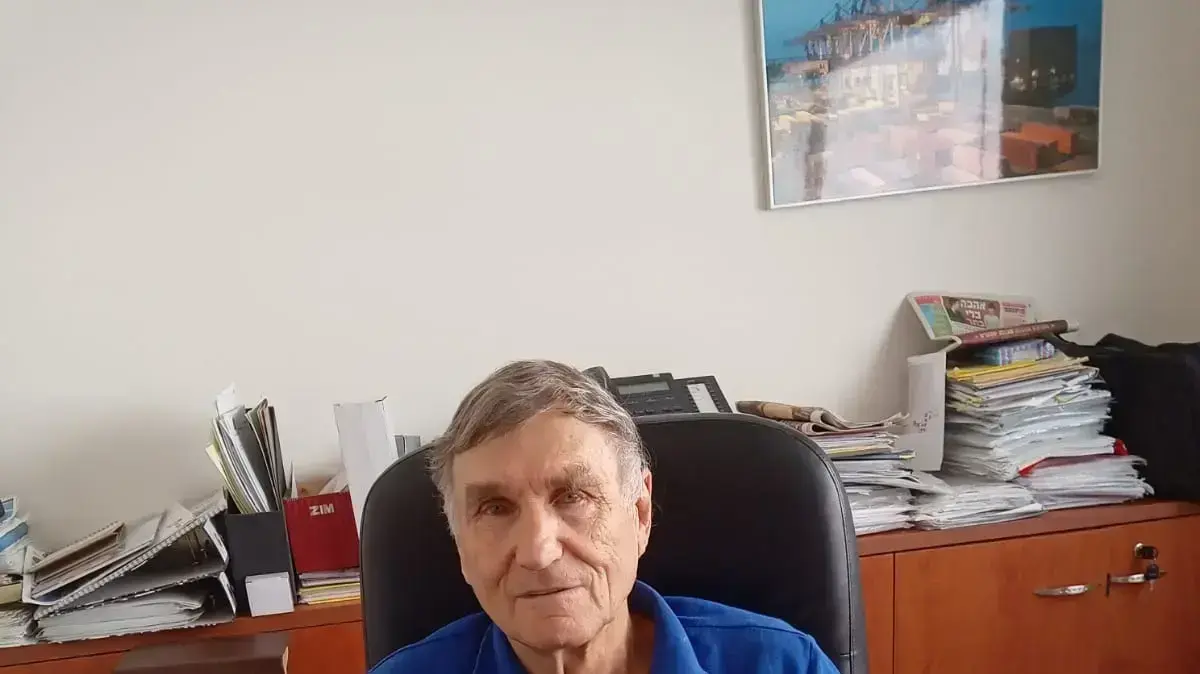
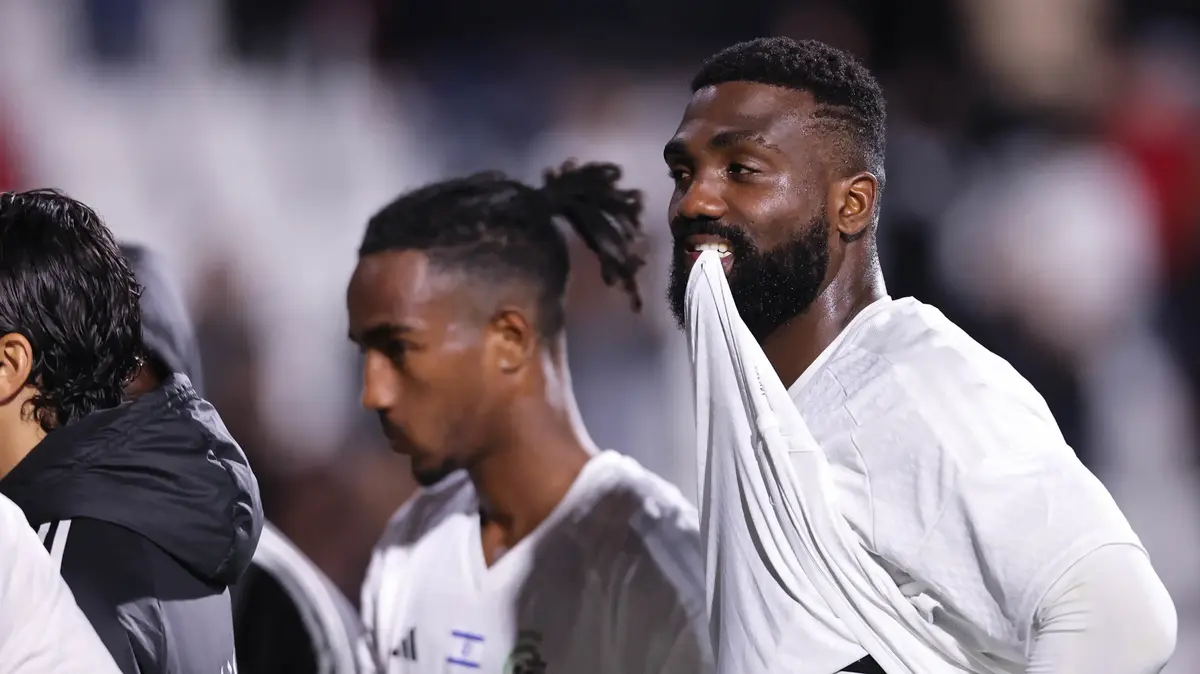
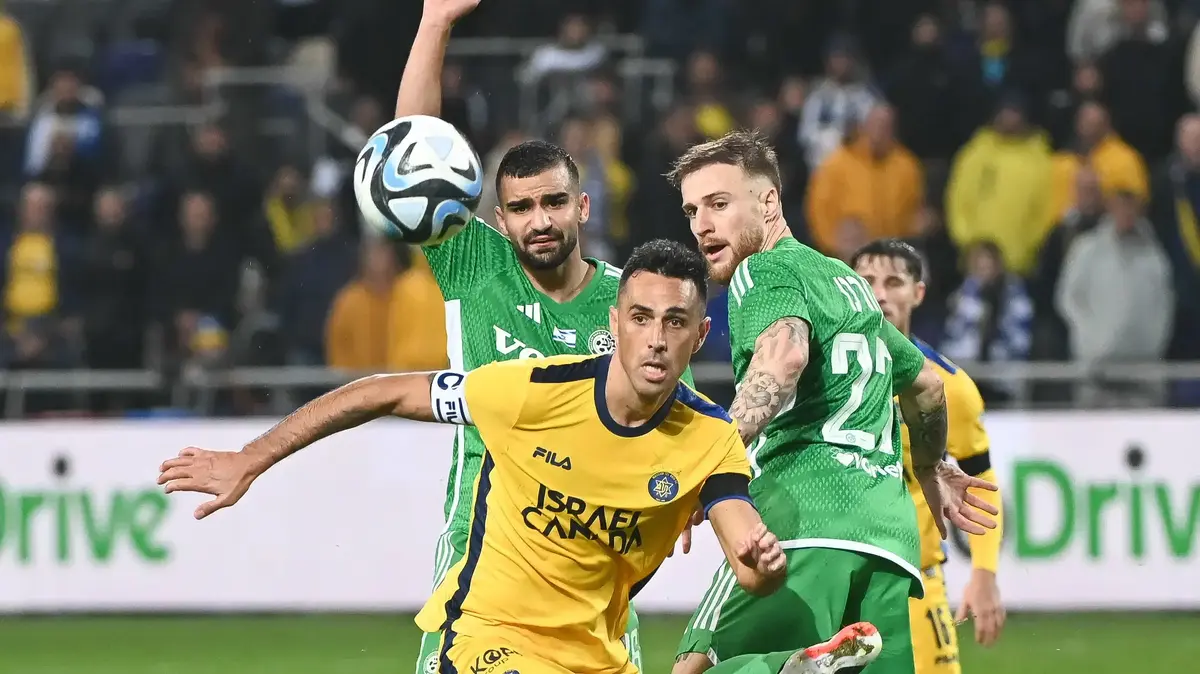
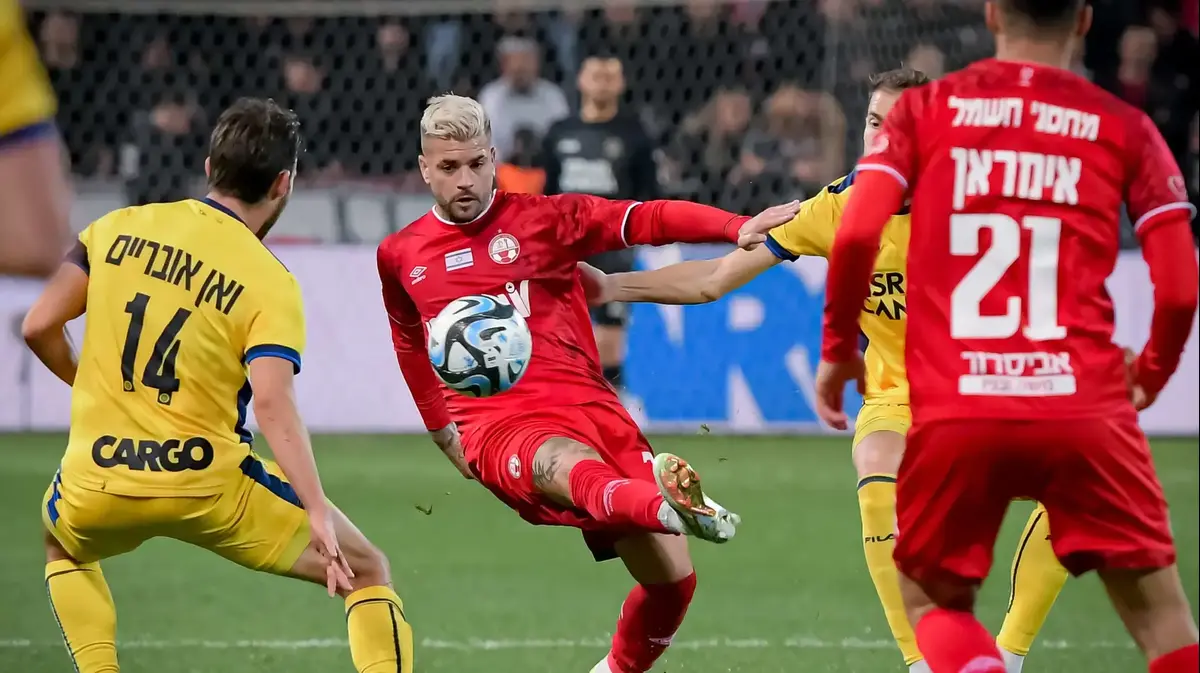
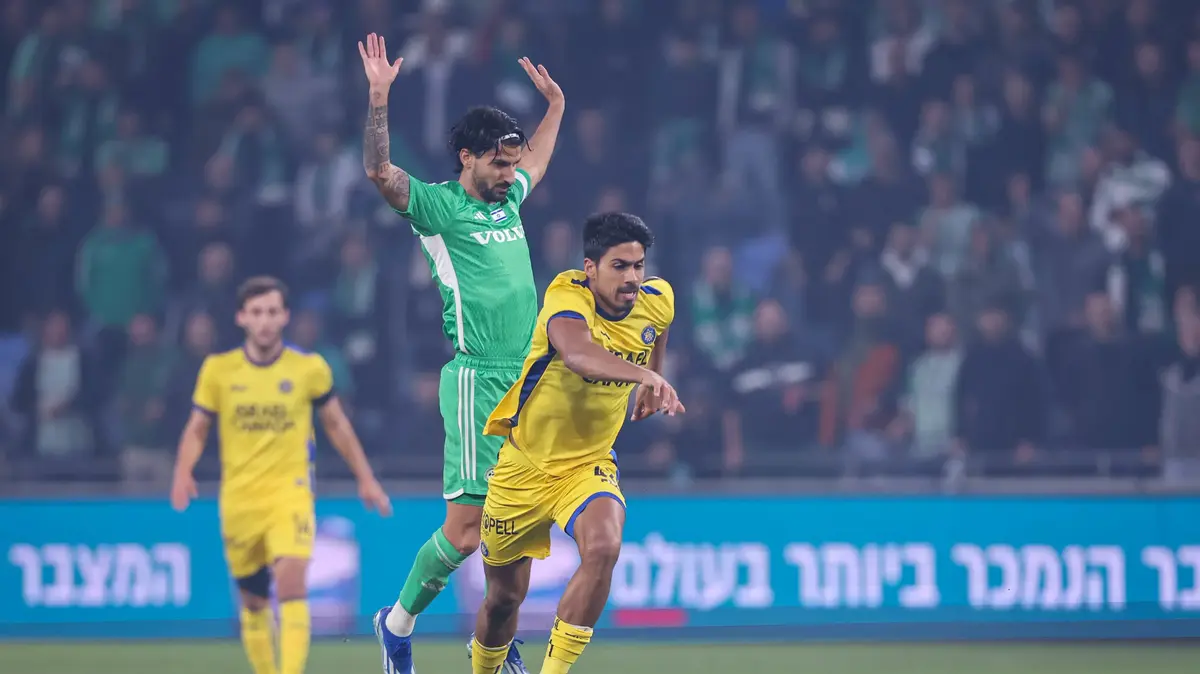
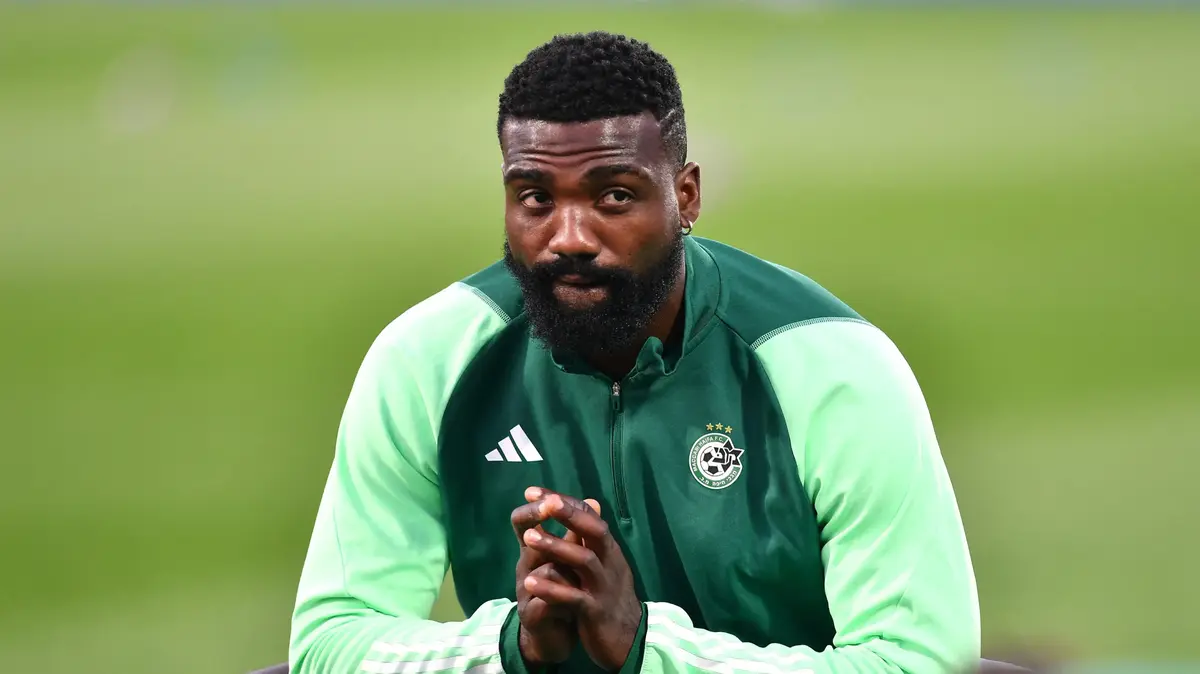
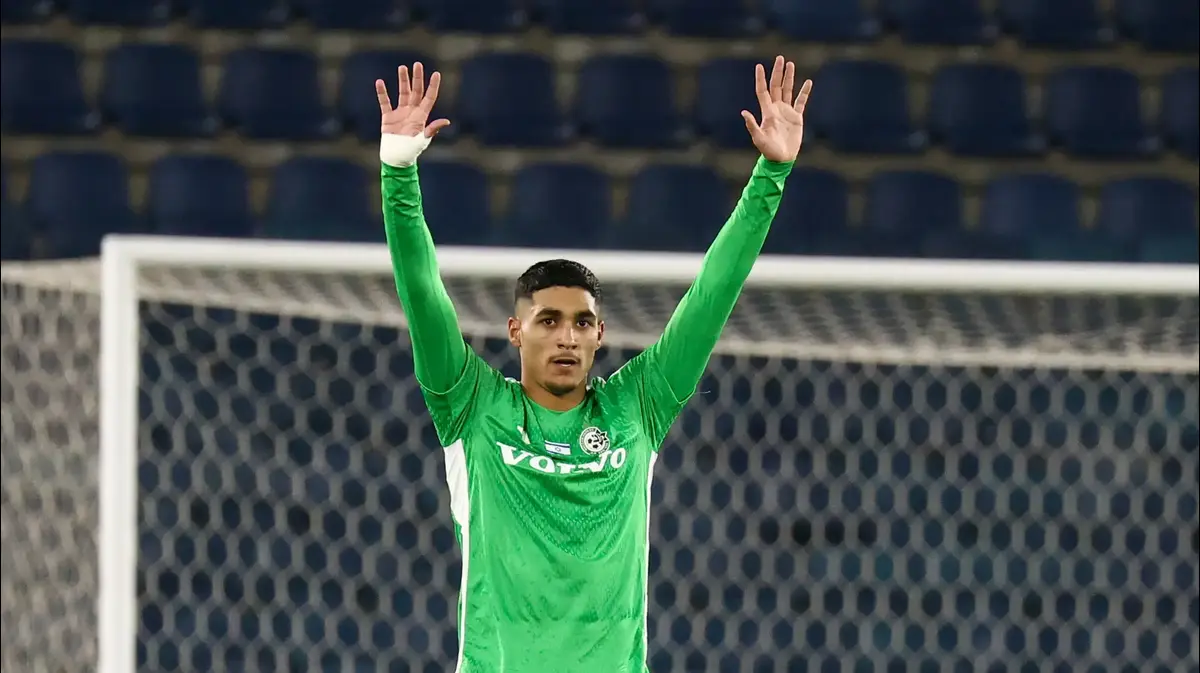
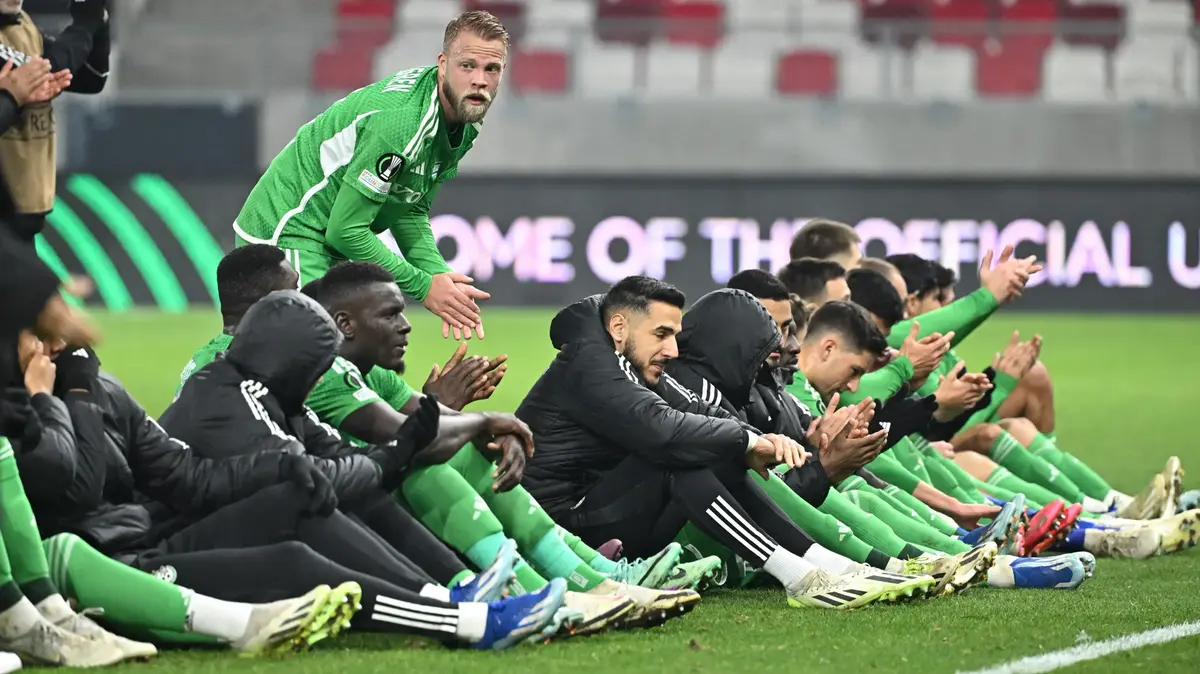
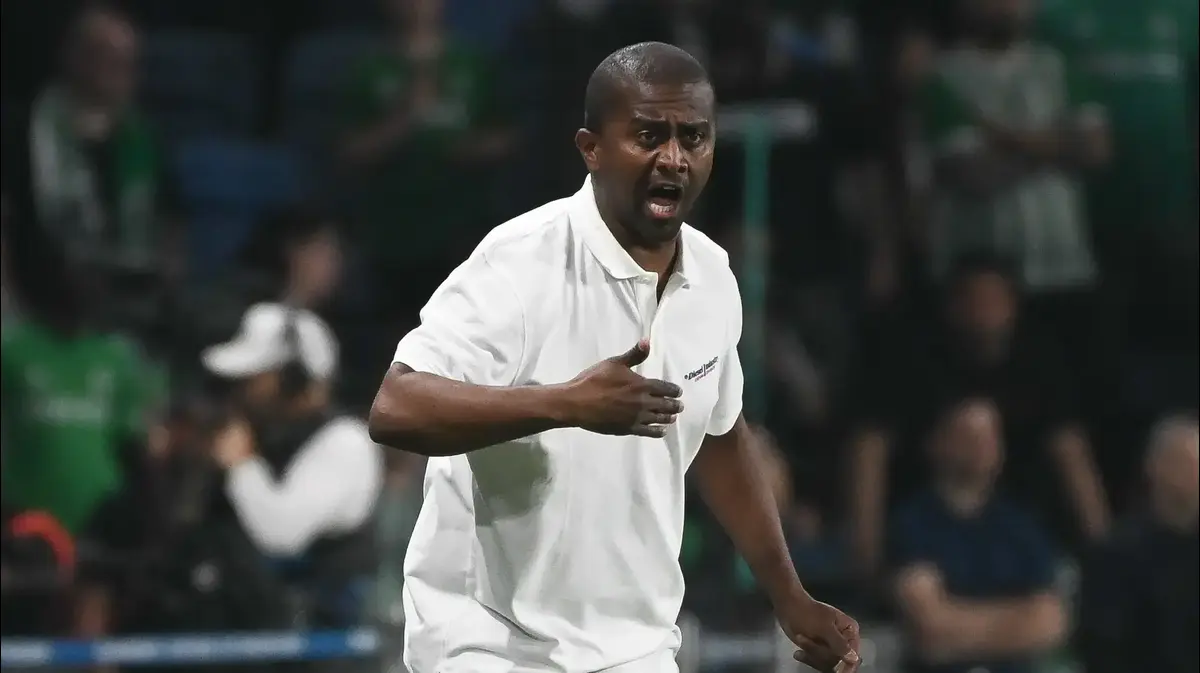
/cloudfront-eu-central-1.images.arcpublishing.com/prisa/S7UVDTX7DREC7DXVCZN6MEKGBY.jpg)




